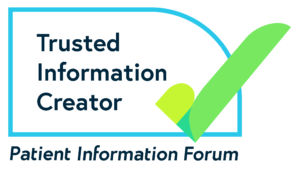Accessing treatment
Accessing migraine treatment that's not routinely funded by the NHS
Non-routine migraine treatments
In certain circumstances your doctor may recommend a treatment that is not routinely offered on the NHS. This is more likely to happen if you have a rare form of migraine or other treatments have proved inappropriate or ineffective for you.
The NHS may not routinely offer a treatment if:
- it is new and not yet approved by the National Institute for Health and Care Excellence (NICE) or the Scottish Medicines Consortium (SMC)
- it is requested to treat a condition that is not its normal use
- it is licensed but not approved by NICE or the SMC
- it is for very rare conditions/symptoms.
How to access treatments
If you and your doctor are considering trying a treatment for your migraine that is not routinely available on the NHS there are different routes you could explore to access this. They are:
- Individual Funding Request
- Self-funding
- Clinical trials and studies
Individual Funding Request
In ‘exceptional’ circumstances the NHS will still fund treatments that are not routinely available on request.
Your doctor can make a request for funding to your local Clinical Commissioning Group/Health Board on your behalf. This process has a different name depending on where you live in the UK:
- England and Wales: Individual Funding Request
- Scotland: Individual Patient Treatment Request
- Northern Ireland: Individual Funding Request
Your doctor will only make the request if they think that you meet the ‘clinical exceptionality’ requirement. This means that you are different to other patients with the same condition or might benefit from the treatment in a different way to others. Your local CCG/Health Board will have details of the request process on their website.
Self-funding
The treatment may be available privately and you could consider funding it yourself if you are able to afford to. Discuss this with your doctor if it may be an option you can explore. He/She may be able to carry out the treatment themselves or recommend a private clinic.
Clinical trials and studies
Patients can volunteer to take part in research to test the benefits of a new treatment as part of a clinical trial or study before it becomes routinely available.
This means trialing a treatment for a set period of time during which you will have to report the effects on your migraine and general well being. It may involve questionnaires, interviews, tests at a research centre etc. This will vary depending on the treatment and type of research carried out.
It is important to note that at the end of the trial or study there may be no guarantee that the treatment will become routinely available on the NHS.
Next steps:
- Ask your doctor to consider any migraine trials or studies that you may be suitable for
- Search for research studies through the National Institute for Health and Care Research (NIHR)
From time to time we are contacted by researchers seeking volunteers to assist with migraine related research projects.
- Visit the take part in research page on our website.
About our information
 This information has been written by The Migraine Trust Information and Support Services team. It has been reviewed by our panel of expert health professionals and people affected by migraine.
This information has been written by The Migraine Trust Information and Support Services team. It has been reviewed by our panel of expert health professionals and people affected by migraine.
Our information has been awarded the PIF TICK quality mark for trustworthy health information.
If you have feedback on our information, please get in touch at: feedback@migrainetrust.org
References for our information are available on request.


